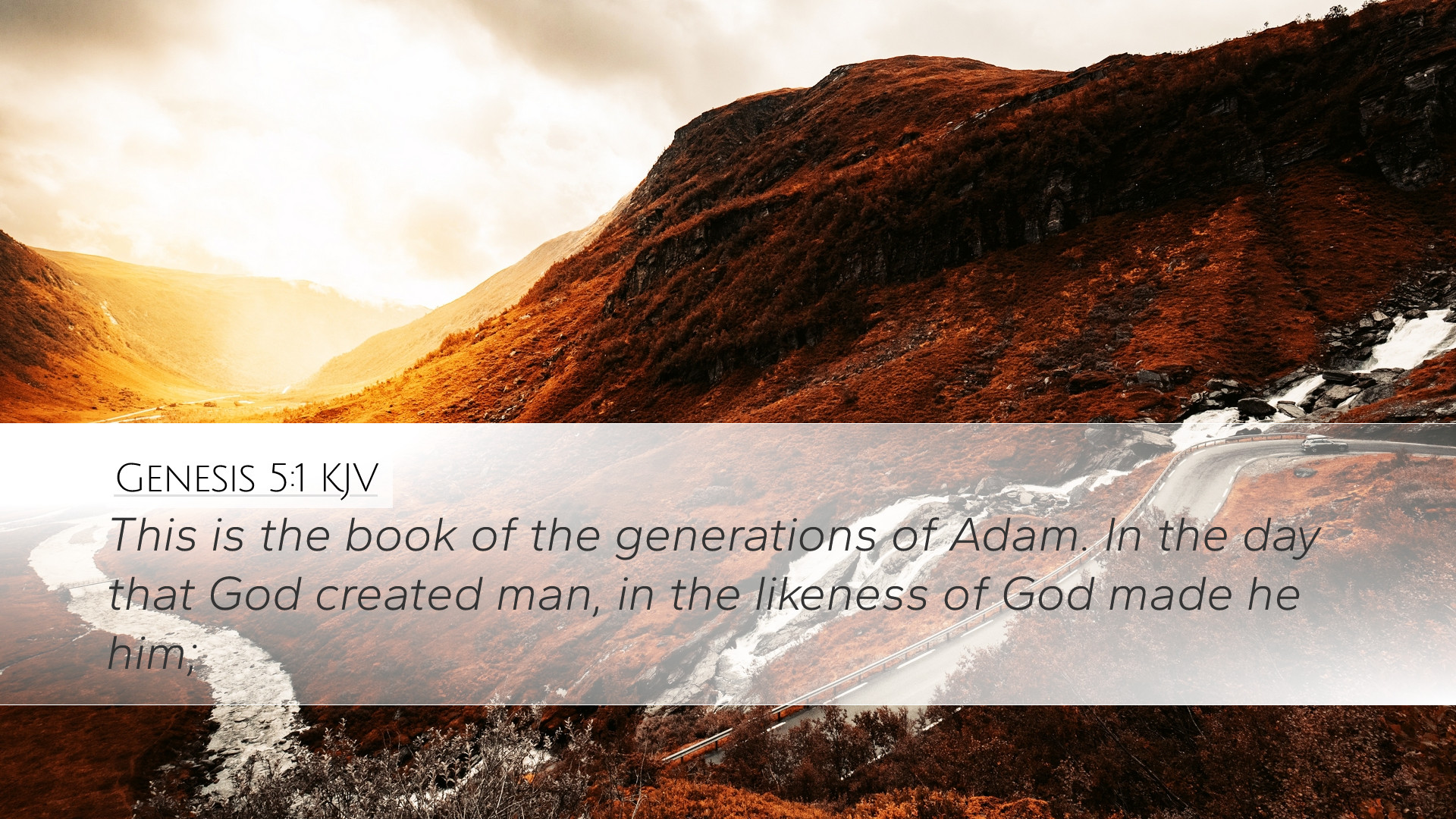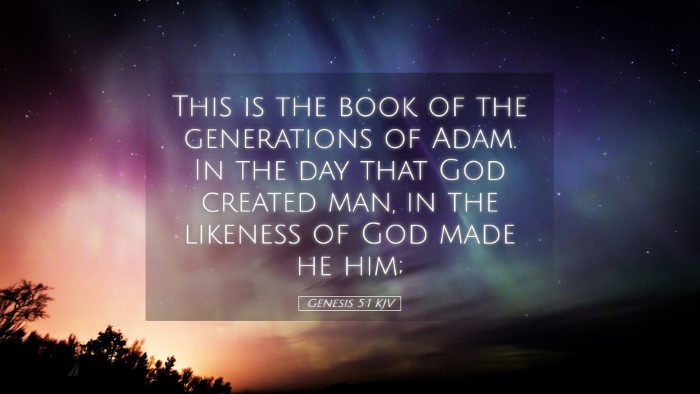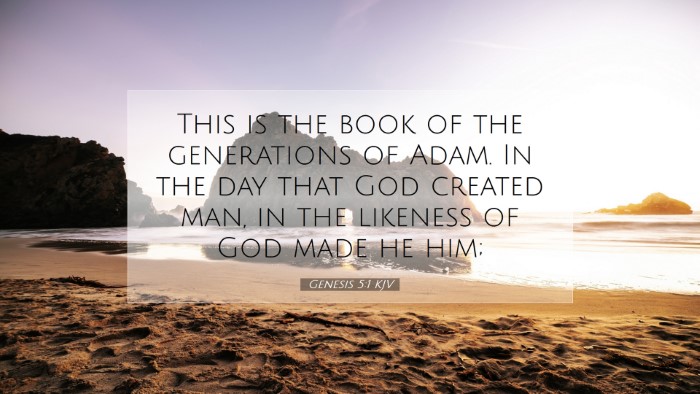Commentary on Genesis 5:1
Genesis 5:1 (NIV): "This is the written account of Adam's family line. When God created mankind, he made them in the likeness of God."
Introduction
This verse serves as an introduction to the genealogical record of Adam’s descendants and marks a significant transition in the narrative of Genesis. Scholars and theologians recognize the importance of this lineage as it traces the unfolding of God's covenantal promise throughout history.
Insights from Matthew Henry
According to Matthew Henry, the phrase "the written account of Adam's family line" emphasizes the importance of record-keeping in God's plan. It suggests divine oversight in maintaining a historical narrative of humanity's beginnings, serving as a means of teaching and remembrance.
- Divine Creation: Henry highlights the doctrine of creation in this verse, noting that mankind was created by God, which establishes a foundational truth about human dignity and purpose.
- Likeness of God: The assertion that humanity was made in the "likeness of God" invites reflection on the intrinsic value and moral responsibility bestowed upon humanity. This divine image is foundational for understanding human nature and relationships.
Insights from Albert Barnes
Albert Barnes sheds light on the phrase “when God created mankind.” He observes that this reference to the act of creation serves as a theological declaration affirming God’s sovereignty and authority over all creation.
- Comparison to Other Beings: Barnes compares humans to other creatures by emphasizing mankind's unique creation in the image of God, which grants humanity a special status in creation.
- Genealogical Importance: This genealogical account is significant not just for historical records but for theological implications about God’s unfolding plan through generations.
Insights from Adam Clarke
Adam Clarke provides a detailed examination of the text, emphasizing that this passage represents a turning point from the narrative of creation to a focus on humanity’s legacy and its impact on subsequent generations.
- Historical Context: Clarke points out that the genealogies reflect a broader historical context, showing how God operates over time, guiding history towards redemptive purposes.
- Spiritual Significance: He asserts that understanding man’s creation in the likeness of God informs every aspect of theology, from the nature of sin to the understanding of redemption through Christ.
Theological Implications
The theological implications of Genesis 5:1 are profound. This verse not only affirms the doctrine of creation but also establishes the foundation for understanding human identity and purpose within the biblical narrative.
- Image of God: The concept of being made in God's image (Imago Dei) has significant ethical and moral implications for how humans relate to one another and to God.
- God's Sovereignty: The declaration of God as the creator reinforces His sovereignty over creation and highlights the intentionality behind the human existence.
- Covenantal Promise: The genealogy that follows in Genesis leads to the understanding of the covenant God establishes with His people, tying human history into divine narrative.
Reflections for Pastors and Theologians
For pastors and theologians, Genesis 5:1 provides an opportunity to preach on the value of human life, the importance of history in understanding God's plan, and the theological themes surrounding creation and covenant.
- Preaching on Creation: This verse can be used as a starting point to discuss the significance of creation, human dignity, and our relationship with God.
- Genealogy in Ministry: Teaching about genealogies can be a powerful tool in demonstrating the continuity of God’s promises through generations, encouraging congregations to see themselves as part of this ongoing story.
Conclusion
Genesis 5:1 serves as more than just a verse concerning genealogy; it encapsulates the essence of humanity's divine origins and purpose. By synthesizing insights from notable commentators like Matthew Henry, Albert Barnes, and Adam Clarke, we can appreciate the depth of meaning contained within this seemingly simple text. This verse invites deeper theological reflection and affirms the profound truth that we are created in the image of God, called to reflect His glory in our lives.


